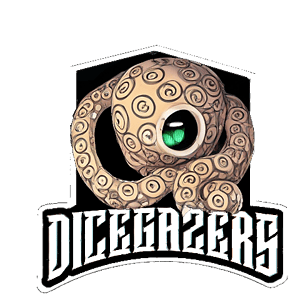Are you new to tabletop roleplaying games and wondering how they work? This article discusses the TTRPG game mechanics that are common amongst all tabletop roleplaying games.
Role-Playing Game Mechanics
There are three broad categories: setting, game systems, opposition and creating campaigns. Each have sub-categories that further break it down.
Setting
Each game has its own distinct flavor even if they are in the same genre. This is because the details of the setting are distinct and then the game systems make each game feel different. A setting can be located in a single continent, as in Earthdawn, or it can span dimensions, or anywhere in between.
History and lore
For games to feel fully alive, they need to have a past and present. All games that I know of have a storyline of events taking place in the present that the players can get involved with. This can be the primary means of adventure or only one of many plotlines.
Game Systems
Game systems are the mechanics by which players create characters, GM’s create NPCs, and both make spells, items, other equipment and combat.
Character creation
One of the first systems discussed in games is how to create a character. Each game has a system that goes like this: stats, class, race, skills, spells and abilities, and equipment. Some games expand more on this by including a section on backstory and personality development.
Spells and Abilities
This is a catch-all category for things like spells or abilities. Each game has slightly different variations on the theme of magic, superpowers, psionics, and other supernatural powers. In some game settings you can pick one, many or none of these. In Rifts all of these are options, while in Call of Cthulhu you often play a basic mortal without any special powers.
Skills
Games usually portray skills in one of two ways: through stats or stated. Dungeons and Dragons allow you to take actions based on your stats and tie many skills to those stats. Other games have skills explicitly stated on the character sheet, with many being unusable unless you are skilled in them.
Equipment
All games have an equipment list in the main book and many more equipment in nearly all other published books.
Combat mechanics
Every tabletop roleplaying game has a combat system. Some are extremely simplified while others are incredibly complex. The detail to which you like having your RPGs will determine which you play and those you avoid. That said you need to know how to make a character first in order for the combat mechanics to make sense.
Are you bored and looking for something to do? Check out-When are tabletop roleplaying games better than video games to see what kind of game you should look for.
Opposition
Environmental
Depending on the game you are playing, adventures may have a lot to do with the environment itself. Some games put you in survival situations a lot of the time where you need to gather basic resources to survive, avoid hazards like avalanches, and the like.
In games like Rifts, this can be part of the adventure or not, depending on the game master, campaign, or characters you are playing. For example, superhero characters like Cosmo Knights, and Juicers, don’t need to sleep or eat like normal people, so this can change if survival is even relevant.
Non player characters
In all tabletop roleplaying games, adventures can involve nonplayer characters. These are the people that make up the world who your party will interact with to get quests and information and also be your enemies.
Campaigns and adventures
A tabletop roleplaying game requires a game master to craft adventures for players. Without this being done, or perhaps using a module, the TTRPG is just a setting. Setting and story are totally different things. Put another way, a setting doesn’t not make a story.
Here you can learn more about whats hard about game mastering
You must take the setting, the players, and the opposition and make something out of them.
What is the power level of the game you want to play?
Where do the players start?
What classes, races, equipment, etc, is allowed and not allowed?
Will players have any bonus levels, experience, money, or other things?
What is the primary plot you are all working towards?
Is it a good guys vs bad guys game? If so who is the bad guy(s) and what are they doing?
Conclusion
For those new to the tabletop roleplaying game experience welcome! There are a lot of really good game systems to explore. Whether you are the type that likes fantasy, sci-fi, horror, or anything else, there is something for you to find.
The primary game mechanics for all tabletop RPGs are the same with a slightly different take on each. Setting, game systems, opposition and campaign/adventure creation are well described within each. From character creation to history and lore, there is a lot to learn and enjoy with the tabletop RPG of your choice.
